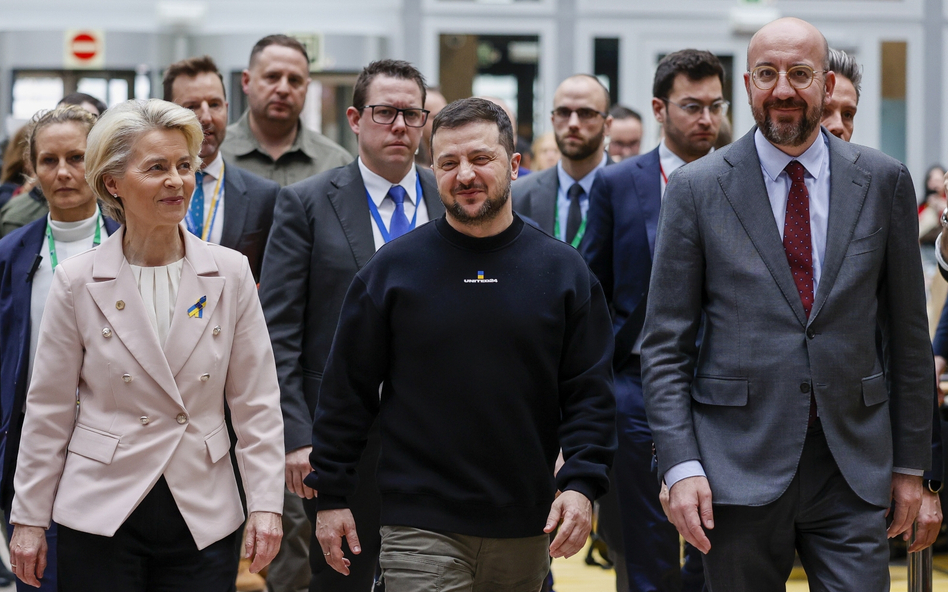
Volodymyr Zelenskyy is touring Europe, but his aim is to put pressure on Joe Biden, because only a nuclear power is capable of deciding where the red line lies with Vladimir Putin.
There is no end to praise for the Ukrainian leader. Just like Gen. Charles de Gaulle six decades earlier, Zelenskyy addressed the combined Houses of Parliament in Westminster Abbey in London. In Paris, he was awarded the highest category of the Legion of Honor. In Brussels, he received a standing ovation in the European Parliament. “Europe should not have gray zones. Our whole continent should be open to European destiny,” he urged the leaders of the 27 states.
The atmosphere on Dec. 22 was the same when Zelenskyy arrived in Washington. Yet, the Ukrainian leader failed to persuade President Biden with regard to his 10-point peace plan, especially points five and six that speak of restoring Ukraine’s territorial integrity and the withdrawal of Russians beyond internationally recognized country borders. The American president assured Zelenskyy only that he shared his vision for peace.
Nobody in the EU will take a step unless the White House decides to act. You can see this in the debate over the transfer of fourth-generation fighter planes, which would put Russians on the defensive. Neither Chancellor Olaf Scholz nor President Emmanuel Macron mentioned the planes, and [Polish Prime Minister] Mateusz Morawiecki stressed that Poland would make such a gesture only within the framework of action by all of NATO. So, that means with the U.S.’ permission.
The matter was passed on to Biden because as leader of a nuclear power, only he can assess what scale of defeat Putin is ready to accept before he resorts to nuclear weapons in desperation. In other words, only Biden can determine the line of compromise that the West will have to convince Zelenskyy to accept at some point.
The most difficult aspect of the decision is the one of territory, especially the status of Crimea. But Ukraine’s place in the future of Western security architecture is equally crucial. The debate on this issue in Washington is confidential, and it looks like it is not over yet. CIA Director William Burns and Secretary of Defense Lloyd Austin are being cautious. Both are aware of the risk that the Kremlin could start World War III. President Biden seems to be more open — not only because he values the Ukrainians’ struggle for freedom and democracy, but because he also wants to exhaust and punish Russia enough to prevent it from attacking its neighbors in the future.
Theoretically, the EU can decide for itself when Ukraine will join it as a member. But even this is unlikely without U.S. consent. That was the case with post-communist countries, including Poland: First there was the NATO umbrella, and only then a united Europe. The U.S. remains the leader of the West, and it defines its borders, although it does take the opinion of its allies into account. So it may be worth trying to win Biden’s favor through them.

Leave a Reply
You must be logged in to post a comment.